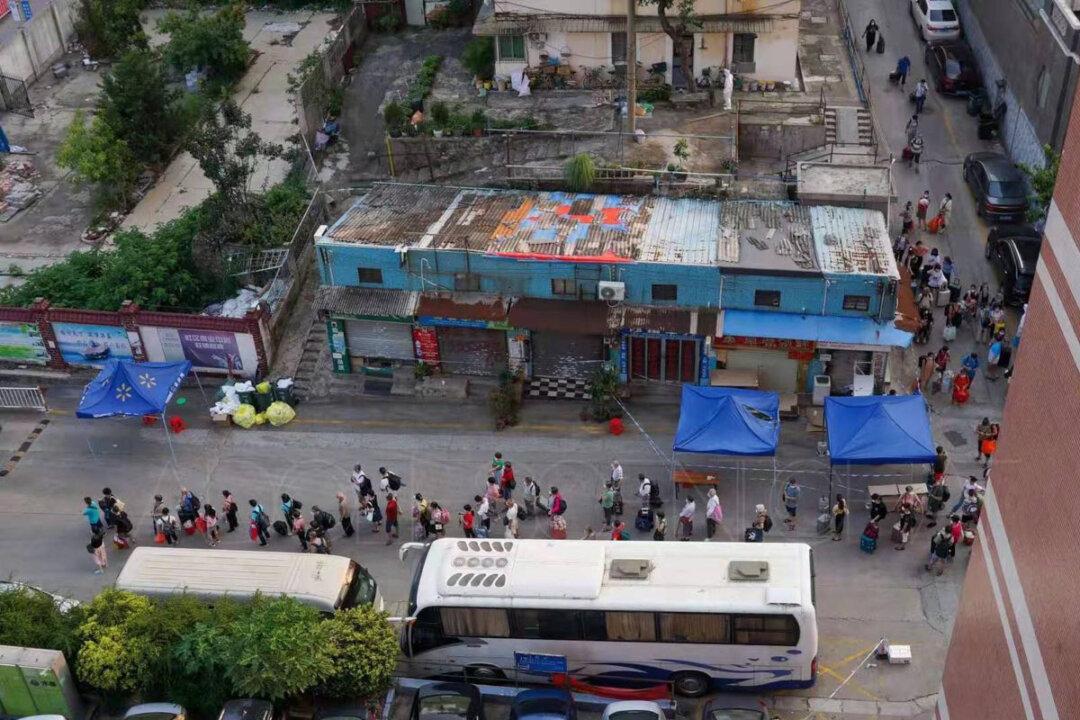Armed forces are stationed around the area of Guangzhou hardest hit by a recent COVID-19 outbreak, as the number of daily infections remains high in the southern commercial city, a night shift guard told The Epoch Times.
“The troops are patrolling everywhere during the day. This is their main battlefield in the daytime, and during the night, it is ours,” he said.




